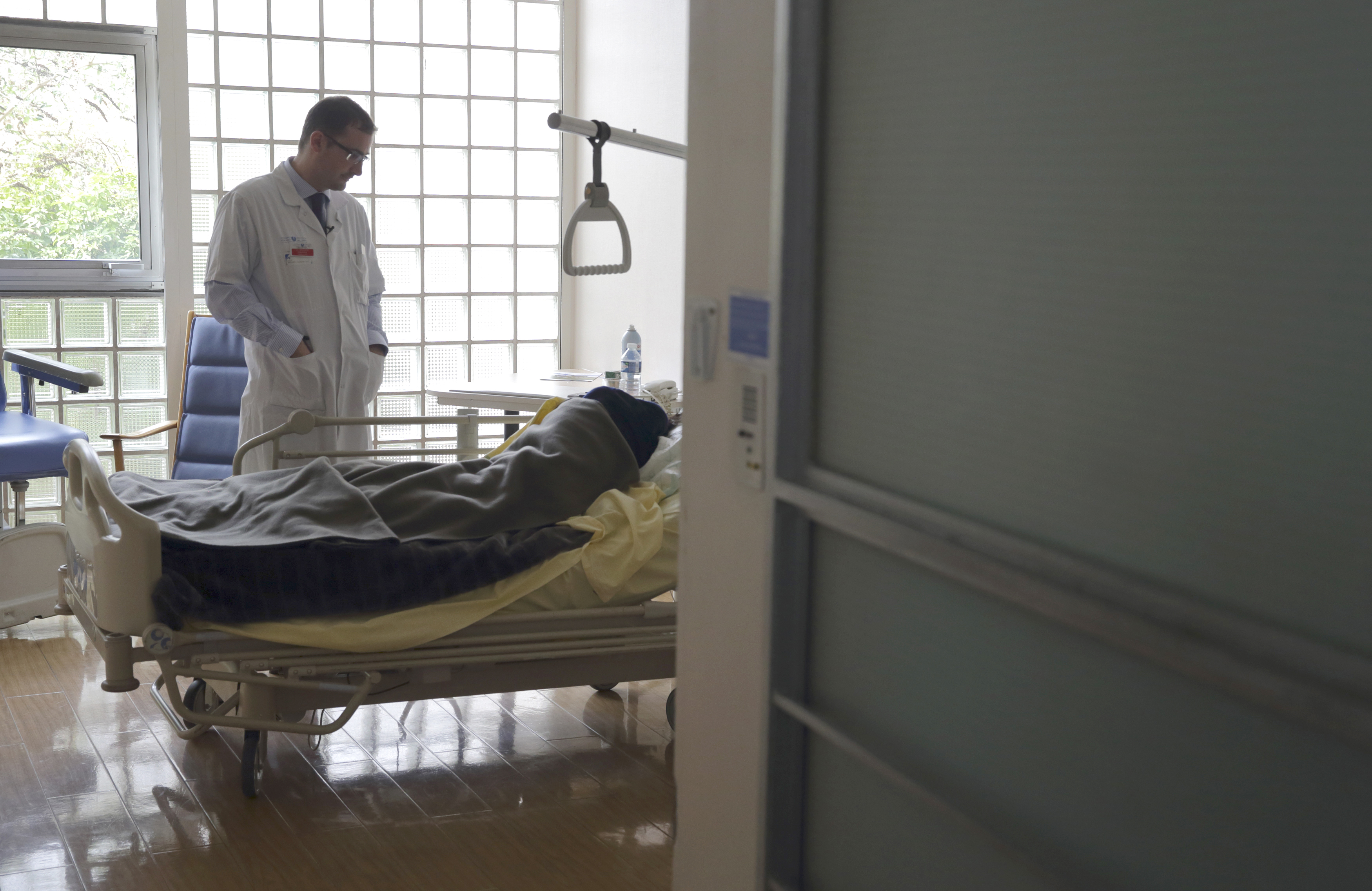What everyone forgets about euthanasia
Asking to die is almost always a cry for help


A free daily email with the biggest news stories of the day – and the best features from TheWeek.com
You are now subscribed
Your newsletter sign-up was successful
France's socialist government has decided to allow discussion on a bill that will, in practice, legalize euthanasia. French law already allows some forms of excessive care to be withheld from terminally ill patients. This is sensible, at least in theory, but the new bill would expand the category of excessive care to include feeding and hydrating, too — in other words, patients who cannot feed or hydrate themselves could be allowed under the bill to die. This is a significant change, one that, if passed, would let many people die who would otherwise not have.
On euthanasia, the battle lines are quickly drawn.
I am a Roman Catholic writer. I am sure you expect me to talk about the infinite value of human life or the danger of playing God when it comes to people's lives, even our own. I am sure you expect me to talk about how nefarious and monstrous it is to confuse a person's intrinsic dignity with their ability to eat or drink.
The Week
Escape your echo chamber. Get the facts behind the news, plus analysis from multiple perspectives.

Sign up for The Week's Free Newsletters
From our morning news briefing to a weekly Good News Newsletter, get the best of The Week delivered directly to your inbox.
From our morning news briefing to a weekly Good News Newsletter, get the best of The Week delivered directly to your inbox.
Perhaps you even expect me to say something which has become scandalous: that under some circumstances, suffering, and the acceptance of suffering, can be redemptive. I am sure you expect me to talk about the very real slippery slopes that have occurred in countries that liberalized euthanasia. To remind you that our civilization is supposedly based at least in part on Enlightenment values and that one of the bedrock axioms of the Enlightenment is the intrinsic dignity and value of human life.
Or perhaps you expect me to talk about personal experience, since it seems to be what informs so many of the discussions of the issue. Perhaps you expect me to sympathize — as I do, genuinely — with the ordeal of those who have seen loved ones wither and diminish to a shadow, so torn by pain and disease that they become unrecognizable and it seems like only mercy to give them an exit. Or to talk about how a true "death with dignity," a long suffering with acceptance of the inevitable, can bring peace to a sick person and his or her family and loved ones, as I have experienced.
But I wish to do none of these things, or only in passing. Because the most frustrating thing about any discussion of euthanasia is the fact almost everyone forgets, a stubborn fact which is the only thing that truly matters on this issue.
And it is this: as most people who have worked in palliative care will tell you, almost every single time a terminally ill person professes that they want to die, it is a cry for help. And almost every single time, when the assertion that they want to die is met with increased care and compassion, the desire goes away.
A free daily email with the biggest news stories of the day – and the best features from TheWeek.com
Sometimes the reason is rooted in physical pain, though this is something we have become quite good at alleviating. Sometimes the reason is psychological — feeling diminished or stripped of autonomy can be crushing. But as anyone with even a smattering of human psychology knows, this is a feeling that must be confronted with love so that it leads to acceptance. Sometimes, most terribly and perniciously, the reason has to do with family, and the sincere sense that it is one's duty not to be a burden to loved ones — a feeling which loved ones, if they are loved and love back, will respond to with only more love.
And this is what makes any abstract debate about values and slippery slopes ultimately beside the point. When the dying who claim to want to die are really calling out for love, the temptation to talk about a right to die must be resisted at all costs.
In their beds of sorrow, the souls of the dying cry out to us with one voice, and they demand only one thing: love. And that is the only thing we ought to give them.
Pascal-Emmanuel Gobry is a writer and fellow at the Ethics and Public Policy Center. His writing has appeared at Forbes, The Atlantic, First Things, Commentary Magazine, The Daily Beast, The Federalist, Quartz, and other places. He lives in Paris with his beloved wife and daughter.
